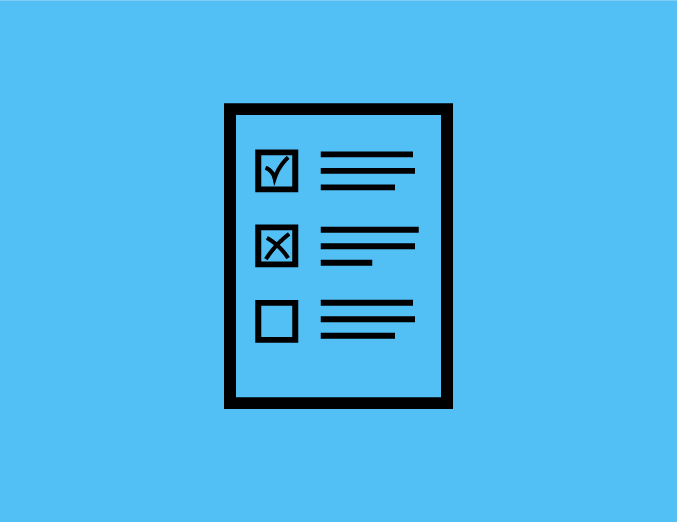The pay as you earn, “ prélèvement à la source ” is new to France, bringing changes to the French tax system and how to complete the 2018 ‘ année blanche’ declaration form.
Whether you are employed, self-employed, unemployed currently or retired, whether you embrace or dislike change - you have to/should complete your 2018 tax declaration form. You have to/should complete it this month (May 2019).
And you have to/should accept it’s probably going to suck. None of us are spared. Which means, also, we’re all in this together and we need to help one another navigate this strange bewildering sea. Birdee is here to help. Here are some do’s and don’ts to add some much-needed ease filling out this year’s changed tax declaration form in France.
DO- submit your tax declaration for 2018.
I am beginning with the most important point. The 2018 ‘année blanche’ may raise questions such as: if I don’t have to pay taxes for my revenue in 2018 why do I have to declare? Good question. The answer is: you still have to submit the form. If you don’t, the consequence could be to pay taxes incurred on your entire revenue in 2018. Ouch. Equally, even if you think you have not earned enough and would fall beneath the required income threshold, it is your responsibility to make sure you complete and submit your tax return. In a nutshell- make sure you fill out and submit the form.
D0- get your year’s right
Despite the changes to the ‘ prélèvement à la source ’ system, this May 2019 you should declare your revenue for the year 2018 (01 January 2018 – 31December 2018). In 2020 you will be expected to declare your revenue from 2019(01 January 2019 – 31December 2019).
DO- submit your declaration in time
Paper hardcopies should be returned by 16 May 2019. If you complete your declaration online, exact deadlines for submission can vary according to your region ‘d é partement’, check out for your regions deadlines online. If you go over the deadline, you risk having to pay taxes on your entire revenue for 2018 or a 10% increase on anything you would have to pay. Consider yourself warned.
DO- go online
It’s preferred, even advised to fill out your declaration online. If you are more of a pen and paper person however, this is also accepted.
DO- submit the right form(s)
There are 7 different forms. The typical and simplest form is ‘n° 2042’. Additionally, there are 6 further choices known as ‘d é clarations compl é mentaires’ depending on your situation:
- Déclaration complémentaire des revenus (2042-C)
- Déclaration complémentaire des professions non salariées (2042-C-PRO)
- Déclaration des réductions et crédits d’impôt (2042-RICI)
- Déclaration des réductions et crédits d’impôt pour investissements outre-mer (2042-IOM)
- Taxe sur les loyers élevés des logements de petite surface (2042-LE)
- Demande de remboursement de la taxe additionnelle au droit de bail (2042-TA)
DO- be aware of changes to this year’s form
Some of the changes include: hours worked overtime up to 5000€ are exonerated; a ' Prime exceptionelle du pouvoir d’achat’ has been established for any bonuses received between 11 December 2018 - 31 March 2019 up to 1000€ and a specific box(1AA/1BA) is provided on the main 2042 declaration, in which you can insert the income of employees‘ particuliers employeurs’. who help at home with for example cleaning. For questions around these or other changes, see the next point.
DON’T- spend 3 hours trying to fill out the form alone/ DO- seek help
Go to your local ‘centre des finances publiques’ there are computers set up and people paid there to help you. The tax declaration website has a friendly new look and there are also online videos to provide guidance for certain questions too.
DO- visit your ‘compte fiscal personnel’
Check your account for updates, alerts and emails, any information and communication- that way you keep on top of your declaration.
DO- know the exceptions
If, in 2018, you received any particular ‘revenus expectionnels’ you are expected to taxes on this amount. This means anything additional to the average worked out for your ‘année blanche’ total: the difference. This exceptional revenue could be, for example: a bonus you wouldn’t normally receive, profits on stocks or investments you’d not normally earn, if you sold a property and so on. Please see here.
Do-take care if you are self-employed
If you are self-employed an ‘auto-entrepreneur’, register your company online on: https://www.urssaf.fr/portail/home/creer-votre-espace.html or https://www.autoentrepreneur.urssaf.fr/portail/accueil.html. From there you can make direct online payments four times a year or on a monthly basis.
DO- inform yourself of ‘flat tax’/’prélèvement forfaitaire unique’ (PFU)
The much debated and discussed ‘flat tax’ is of interest for anyone who would normally be taxed at a rate of 40%, (there could be several contributing factors to this, though it’s normally for medium-to-high earners). If you are not sure whether the flat tax method is beneficial for you, you can calculate your tax rate in a simulation online. If you do decide it is on your benefit, cross the box 2OP. For more details please see here.
Finally, DON’T worry
I am not sure it’s worth our time or energy to get emotional about tax declarations though, I know I have and you have my large-hearted empathy if you do get frustrated, fed up and defeated. Be encouraged, if you make a mistake there will time to rectify it and people to help you. With the changes to the system, some confusion is expected this year. Seek help, stay pragmatic, pull off the plaster/ band aid, you will feel much better once it’s done.
 English
English








